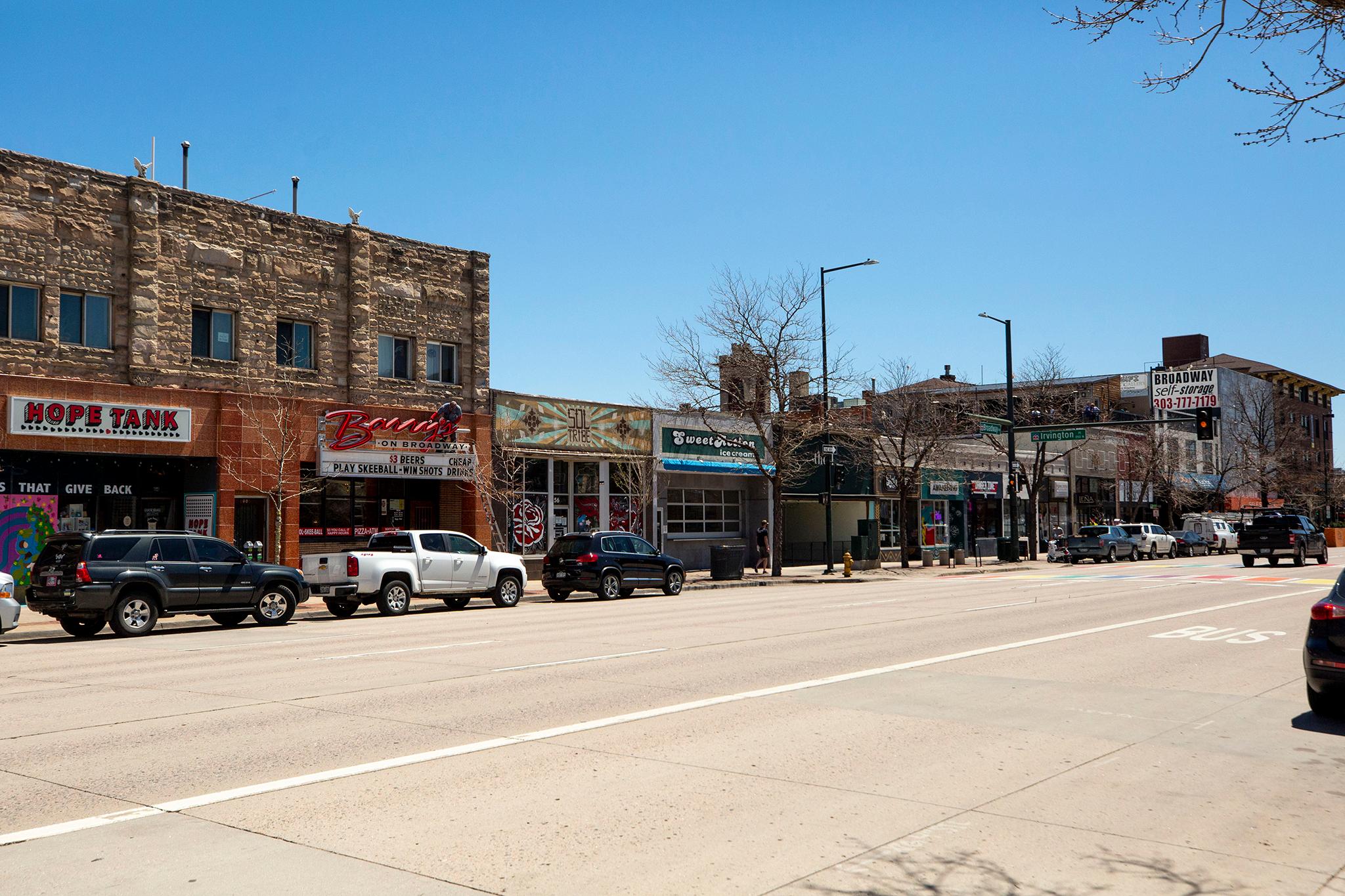A decade ago, the owners of two Broadway businesses saw the writing on the wall. The hotbed of eateries and shops north of Alameda was going to get pricy, and they needed to make sure they could stick around for the long haul. So the owners of Fancy Tiger Crafts, which sells yarn and fabric, and FM, the retail store formally known as Fancy Tiger Clothing, joined forces with some investors and bought a building.
"It was definitely a new step, big step, scary step," FM owner Matthew Brown told us as customers popped in to check out his wares. "We always knew: If we could pull it off, it would be worth it. We knew what was happening down here."
The investment gave the small-business owners some stake in their future. In 2020, their risk paid off in a big way.
As they and their neighbors struggled to make sense of the world under COVID-19, they had the chance to give themselves a break on their rent. One of their mortgages is owned by the federal Small Business Administration, which has twice deferred their loan payments without any extra interest, and they passed those savings right on to their businesses.
Had these business owners not been their own landlords, they may not have been so lucky. There are at least 27 open businesses on the block of Broadway between 1st and Ellsworth avenues. We spoke to the owners of 19 of them. Of 18 restaurants, bars and shops that rent (including FM and Fancy Tiger), ten did not get any breaks from their landlords during the pandemic.
These numbers aren't necessarily unusual. Seven out of ten business owners we spoke to on one block in Park Hill also didn't receive any help on their rents, though that kind of support was much more prevalent on Welton Street and Morrison Road.
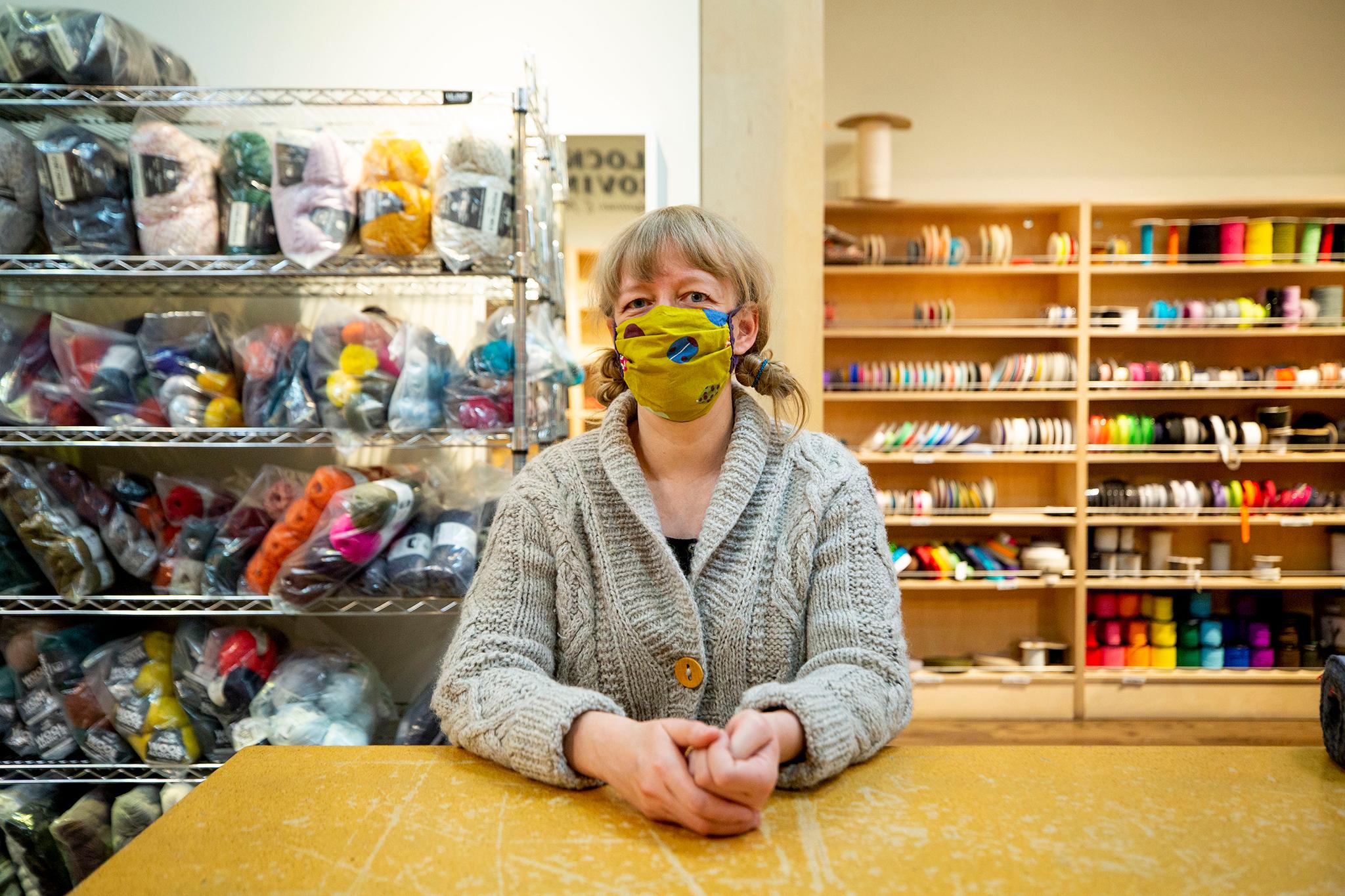
The reasons why vary.
Tony Gudino, manager at Go Fish Sushi, said his restaurant never stopped making money when things shut down, so they didn't need any help (though they did ask for some). That was also the case for the Terrapin Station dispensary next door.
But plenty more said they could have used some grace, and some responses to our survey were ripe with acrimony.
Alicia Cardenas, owner of Sol Tribe Tattoo, called her landlord "a horrible, greedy person who is allowing this entire burden to fall on the small business."
Dylan Moore, owner of Moxie Eatery, said he was filled with dread when he realized he was on the hook for his rent payments during the heat of lockdowns. He had far more than his business on the line.
"I was so scared in the beginning," he said. "I could have lost my home. I had no choice but to completely buckle down and get in here, and I was working 16 hours a day, seven days a week. It was insane, but I had no choice."
A few years ago, Moore installed a window to sell late-night tacos to crowds of bar hoppers. That plan wasn't much of a success, but the window suddenly became a lifeline when he had to stop seating people inside the restaurant. Moxie never closed, he said, and dollars exchanged for lunches through that small opening helped him stick it out.
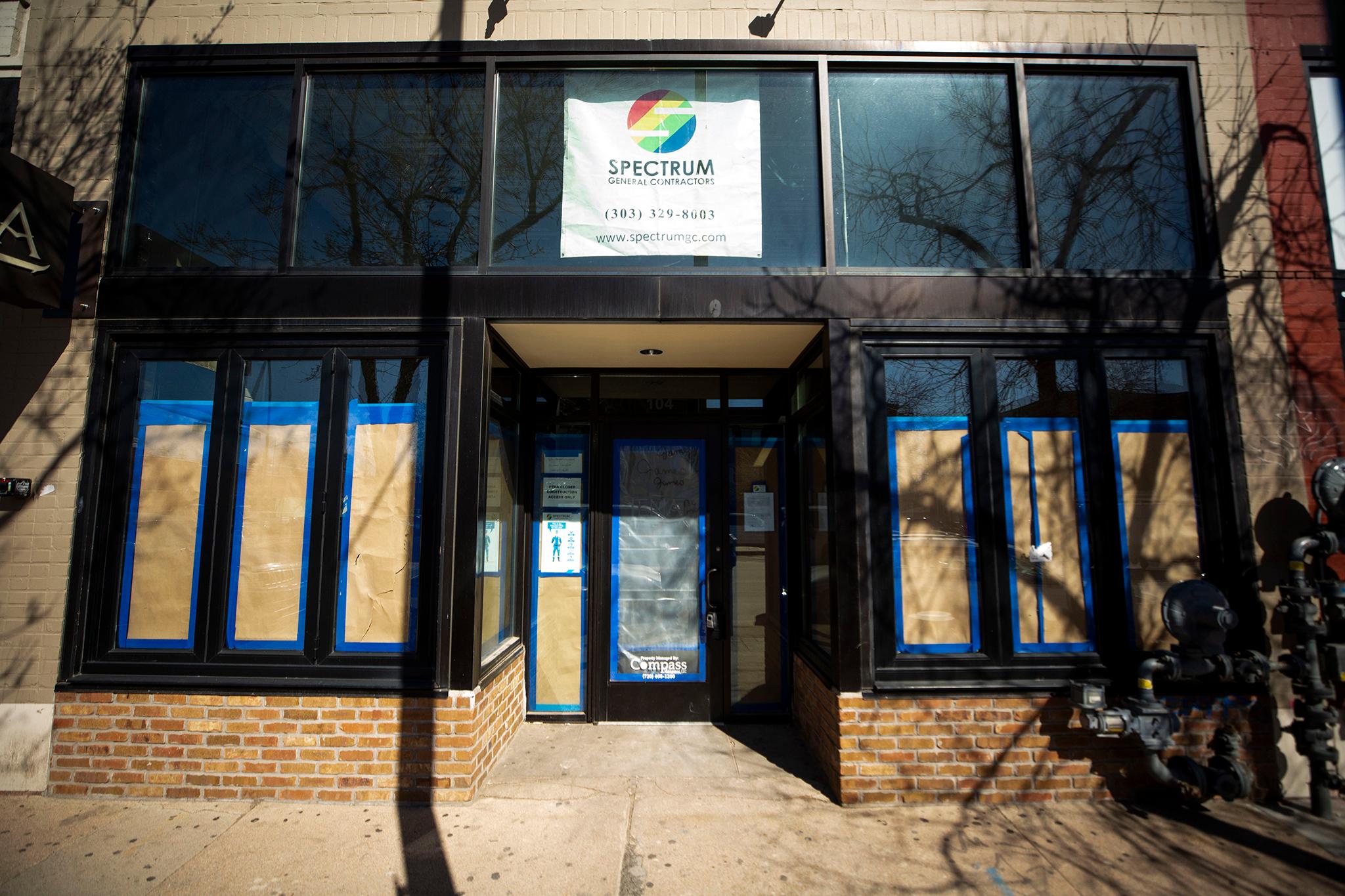
Moore's landlord, Dirk McCuistion, was one of the few property owners who spoke to us for this story. He runs a massage business in Boulder and owns a few residential and commercial properties in Denver. He said he did offer help to two of his tenants, but doing so comes with risk. Banks determine property values from rents collected each year, he told us, and he could lose access to loans if his valuations dip too far. It was a lesson he learned the hard way in 2008, when a bank decided to foreclose on one of his holdings.
Moore said his struggle over the last year did give him some negotiating power. He recently re-signed his lease on terms he could live with.
This block has long been high-risk, high-reward.
Rose Kalasz, who owns the "sex-positive" Awakening Boutique, said she always knew she wanted to set up shop on Broadway. It's long been a place to buy toys and kinky things, but it also offered something more enticing: throngs of shoppers who know it's the place to spend money. But when she started her business, the block was out of reach.
"It was the rent that stopped us from starting here," she told us.
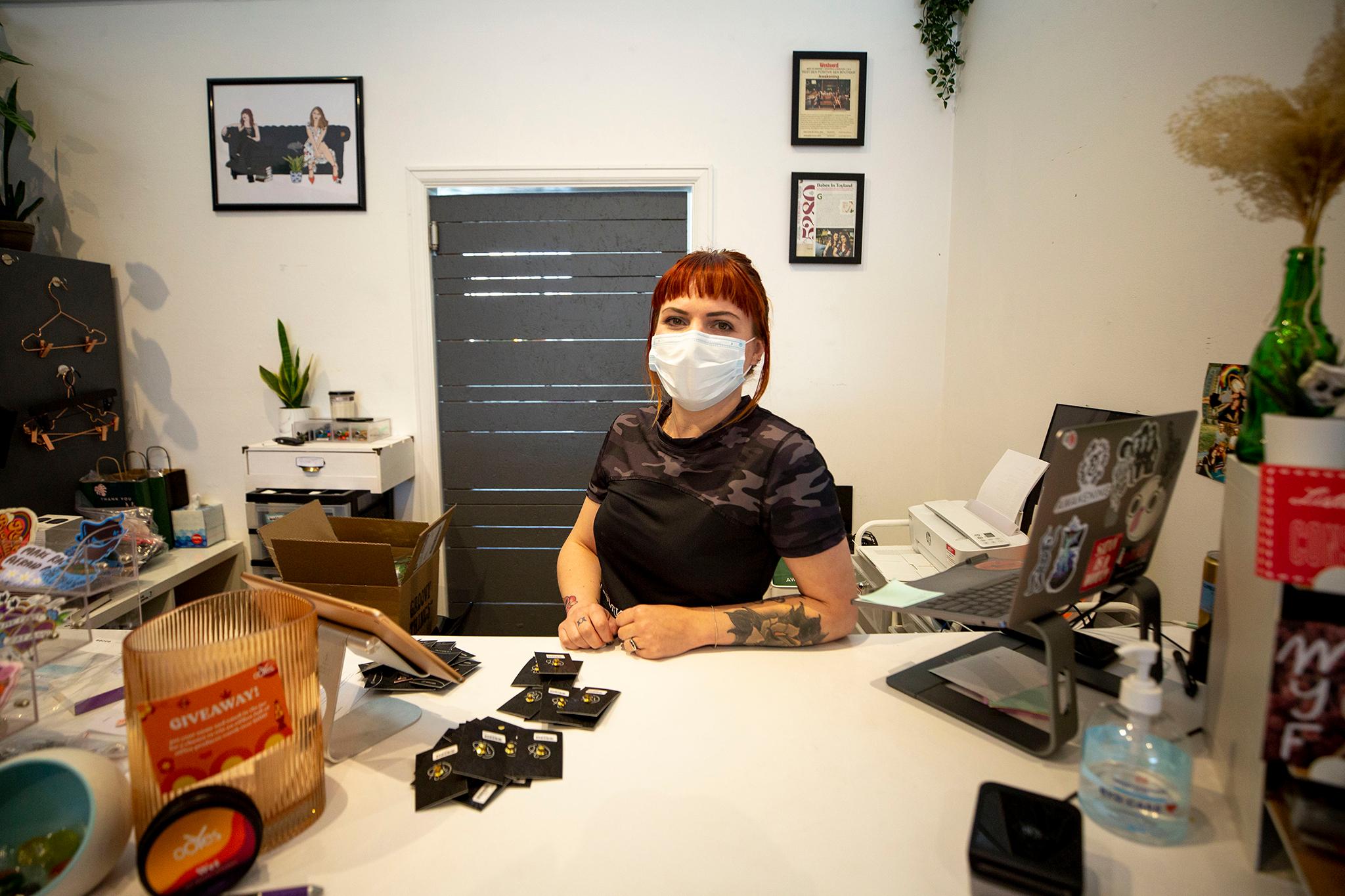
Instead, she opened a shop in RiNo and began to save her earnings. Then, she got a lucky call: A friend said they were giving up their lease on Broadway and asked if she might take it over.
Since she moved in two years ago, Kalasz said she's worked with her neighbors to make sure the strip continues to be a destination for shoppers. A desirable block makes for strong revenues. But it also means higher rent.
Jamal Rassuli, who's owned the Blue Ice Lounge for 20 years, said he's watched both rents and revenues tick up over the years. He's thinks rent prices have outpaced his business's growth.
Barry Zadikoff, who runs Barry's on Broadway with his wife, Mary, said rent prices are getting close to Cherry Creek. Usually, he told us, it's worth it.
"Volume takes care of all your problems," he said. "If you don't have volume, it doesn't matter what your rent was."
And that's key, because Zadikoff hasn't been able to get that volume since last spring. He said the pandemic wiped out hundreds of thousands of dollars he expected to take in last year, and he's still been unable to earn like he needs to.
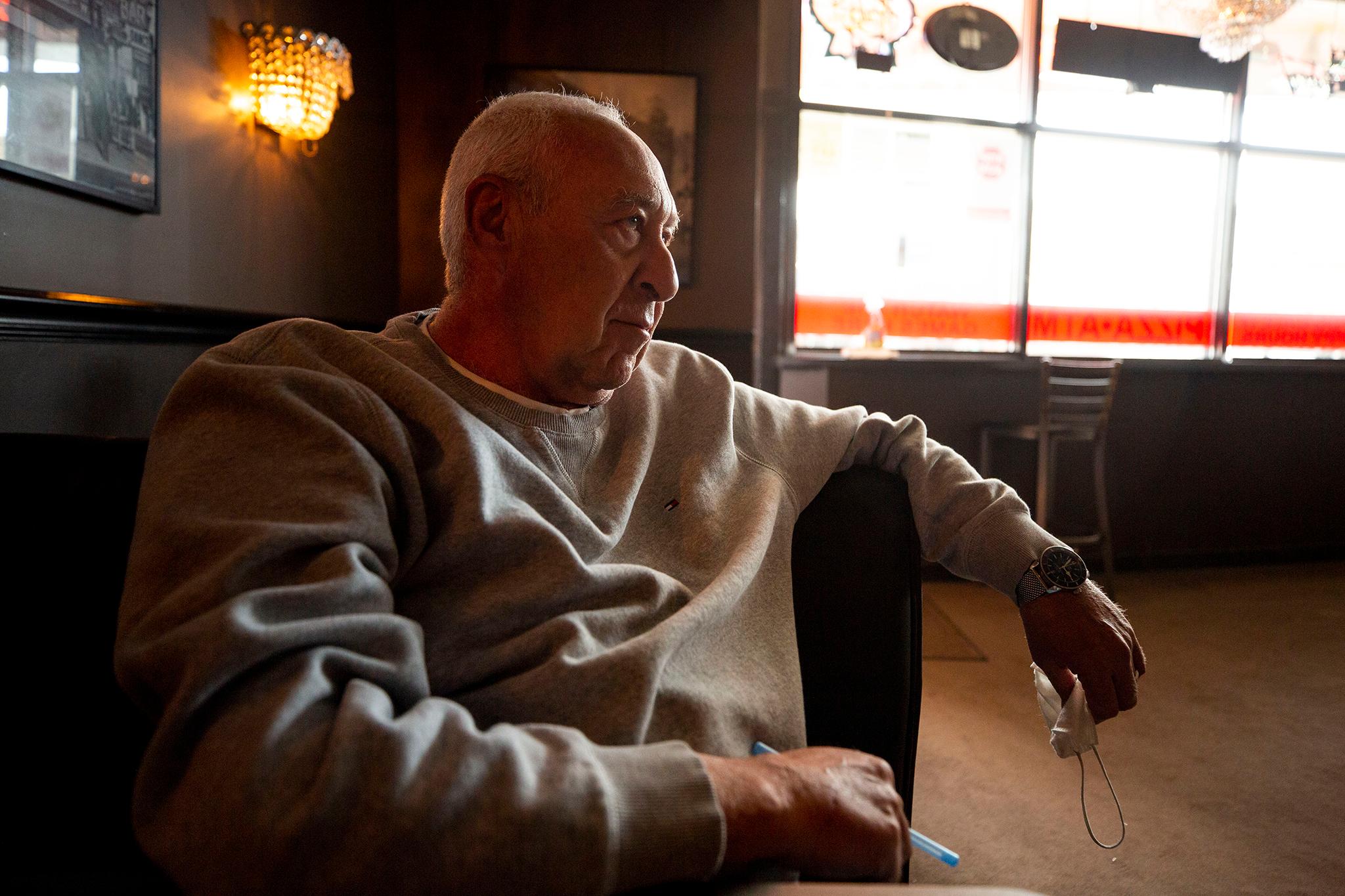
Denver has lifted capacity limits in restaurants and bars so long as parties of customers remain six feet apart. Barry's is a small space, and he can still only fill up about 50 percent. Zadikoff said he doesn't play around with the rules, and he spends most nights telling people to sit down or give each other a little more space.
"I turn away more business than I can let in," he said. "They're not even surprised, they've already been turned away other places."
Zadikoff said he's survived this long because he's been saving for 40 years. But there's also some serious hope on the horizon. On Monday, the Small Business Administration opened applications for their Restaurant Revitalization Fund, which will direct $28 billion to replace losses reported by bars and restaurants in 2020. Zadikoff, who didn't get any help on his rent last year, said it's "the difference between chicken soup and chicken s***." He's getting his paperwork in order.
Some businesses here thrived in 2020. Others need the crowds.
Sex toys, lingerie and knitting supplies were in high demand last year. It was good news for Rose Kalasz, since Awakening's risqué products disqualified her for any federal grants or loans. (She was also grateful that her landlord did offer deferred rent.)
Both Angel Macauley, who owns the Femme Fatale intimates and swimsuit shop, and Amber Corcoran, co-owner of Fancy Tiger, said their loyal customers sought them out over the last year. People needed things to do at home.
Most of the business owners we spoke to said the pandemic fundamentally changed their operations. of the restaurants leaned into delivery apps in a way they hadn't before. Retail owners set up the web shops they'd always wanted to deploy.
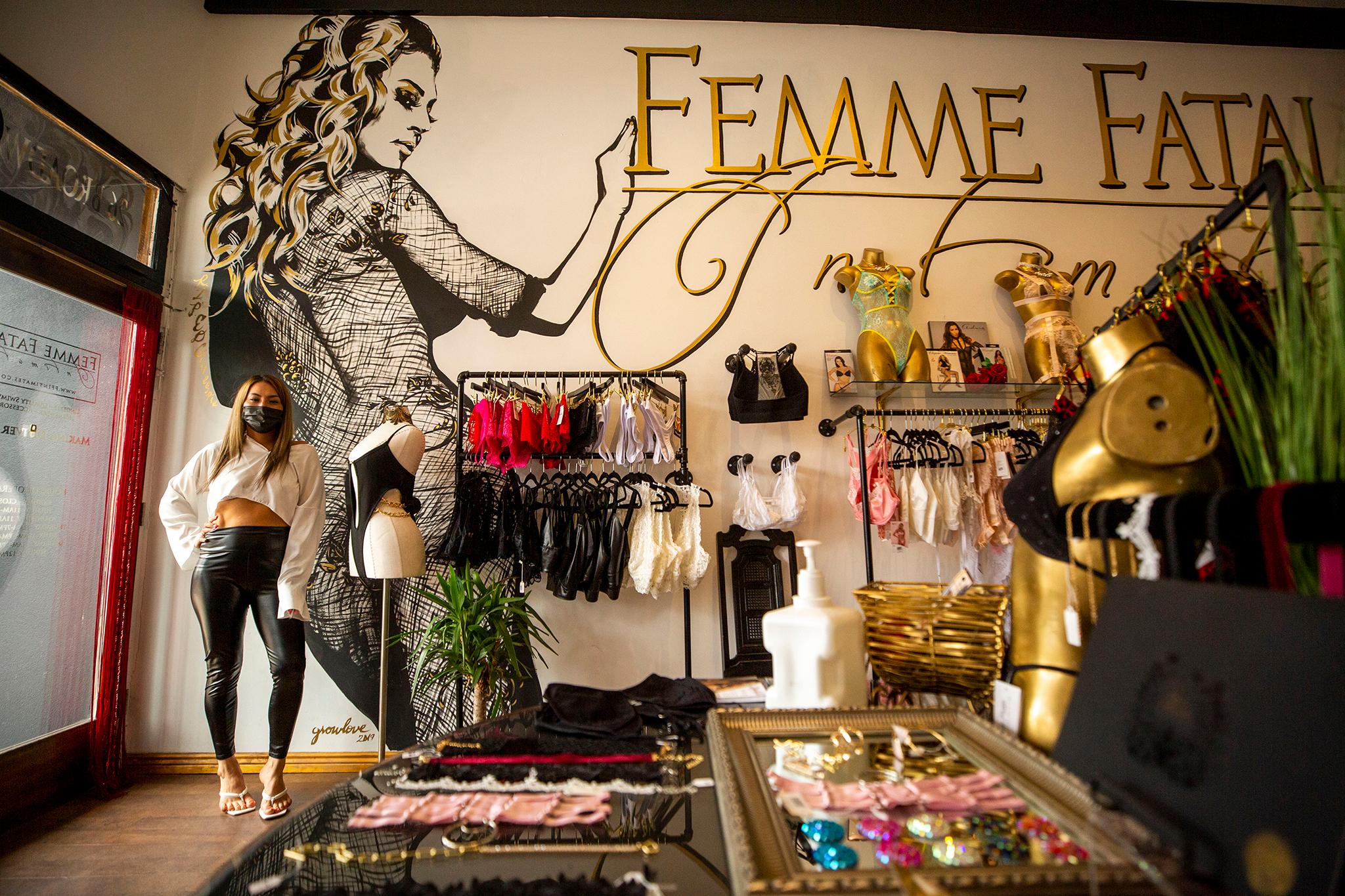
At the beginning of this pandemic, Hope Tank owner Erika Righter told us she worried that the recession would compound on rents that were already hard to manage. Her fears mirror broader concern that locally owned businesses in Denver might be replaced by corporate powerhouses that have the means to weather this moment.
But there are four new businesses on Righter's block of Broadway that have opened since the economy went sideways: a clothing store, a cocktail bar, a calzone joint and a tea shop that's getting ready to start pouring. None of them are chains.
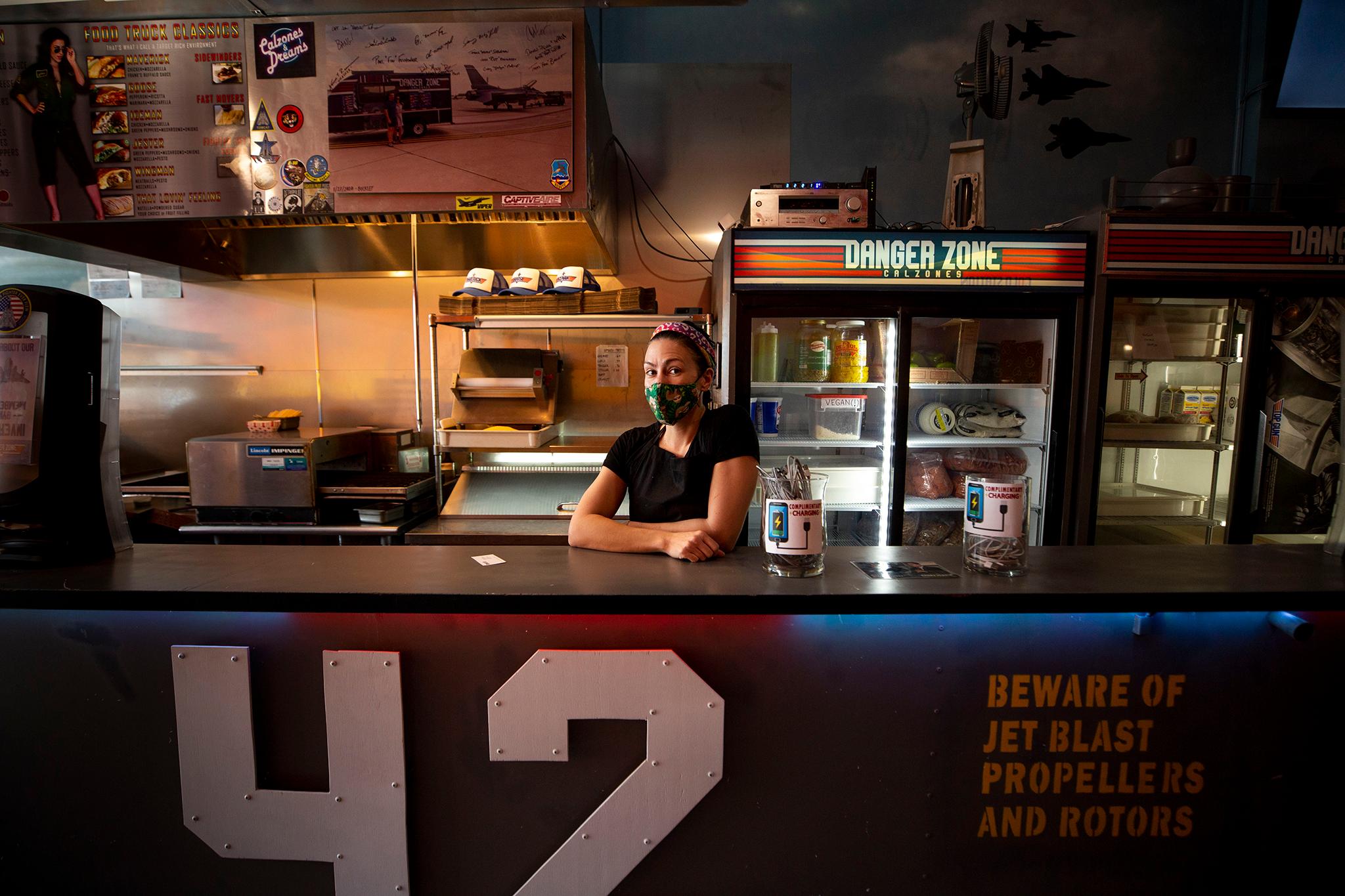
Still, not everyone made it. James Callahan, owner of Leña, closed his restaurant last autumn. Punch Bowl Social, which has a massive drink-and-play space at 1st Avenue, filed for bankruptcy last year after the pandemic "devastated" business. It did manage to get back on the ball; it's set to reopen on May 12.
Mostly everyone we spoke to told us they're feeling optimistic. Customers are returning to the sidewalks, and things are feeling a little more stable. Everyone agreed that spontaneous, walk-in traffic is key to their businesses. It's as true for Sean Sadrearhami's Sufi Rug Gallery as it is for Sean Workman's Hornet Restaurant.
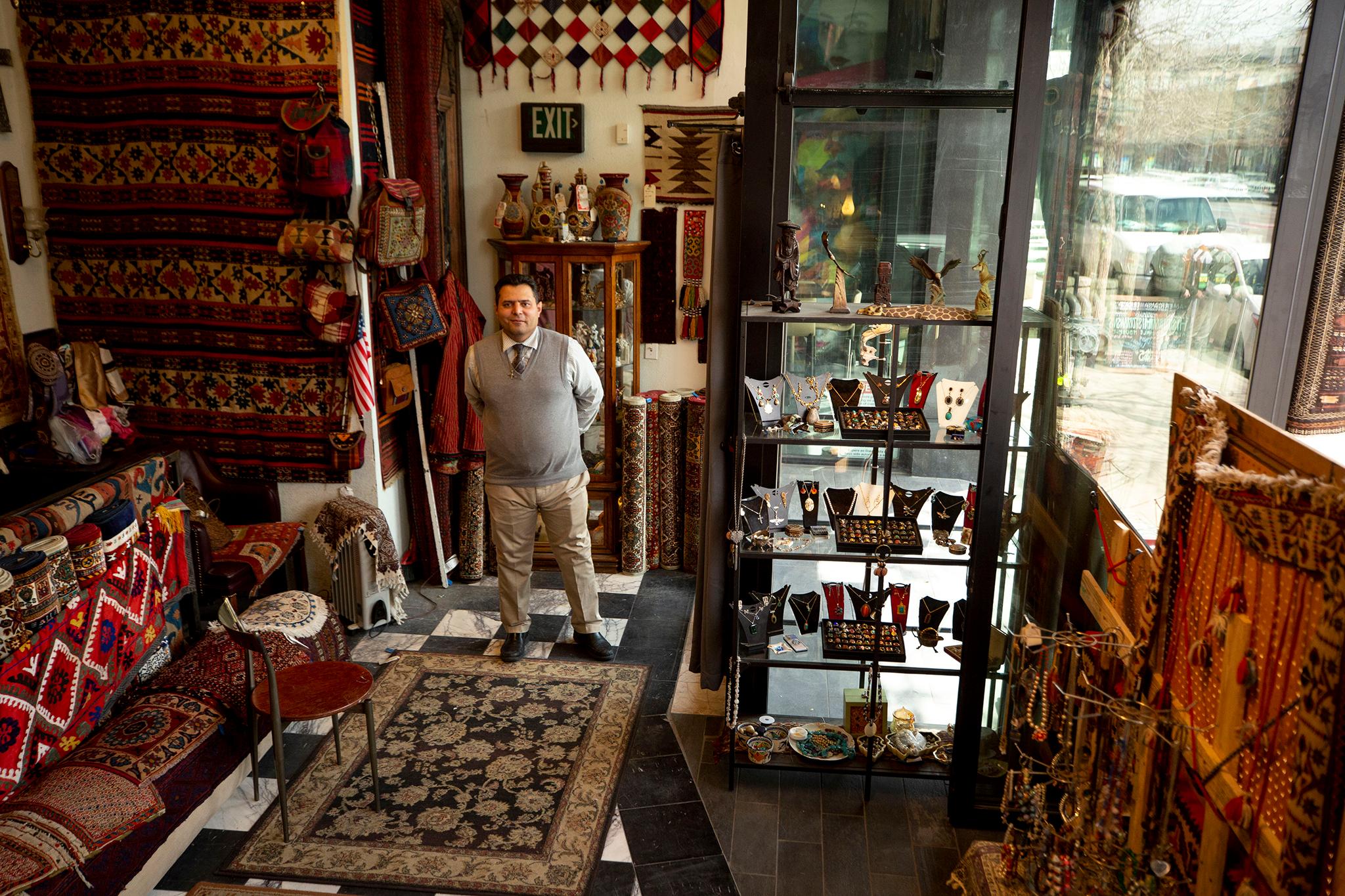
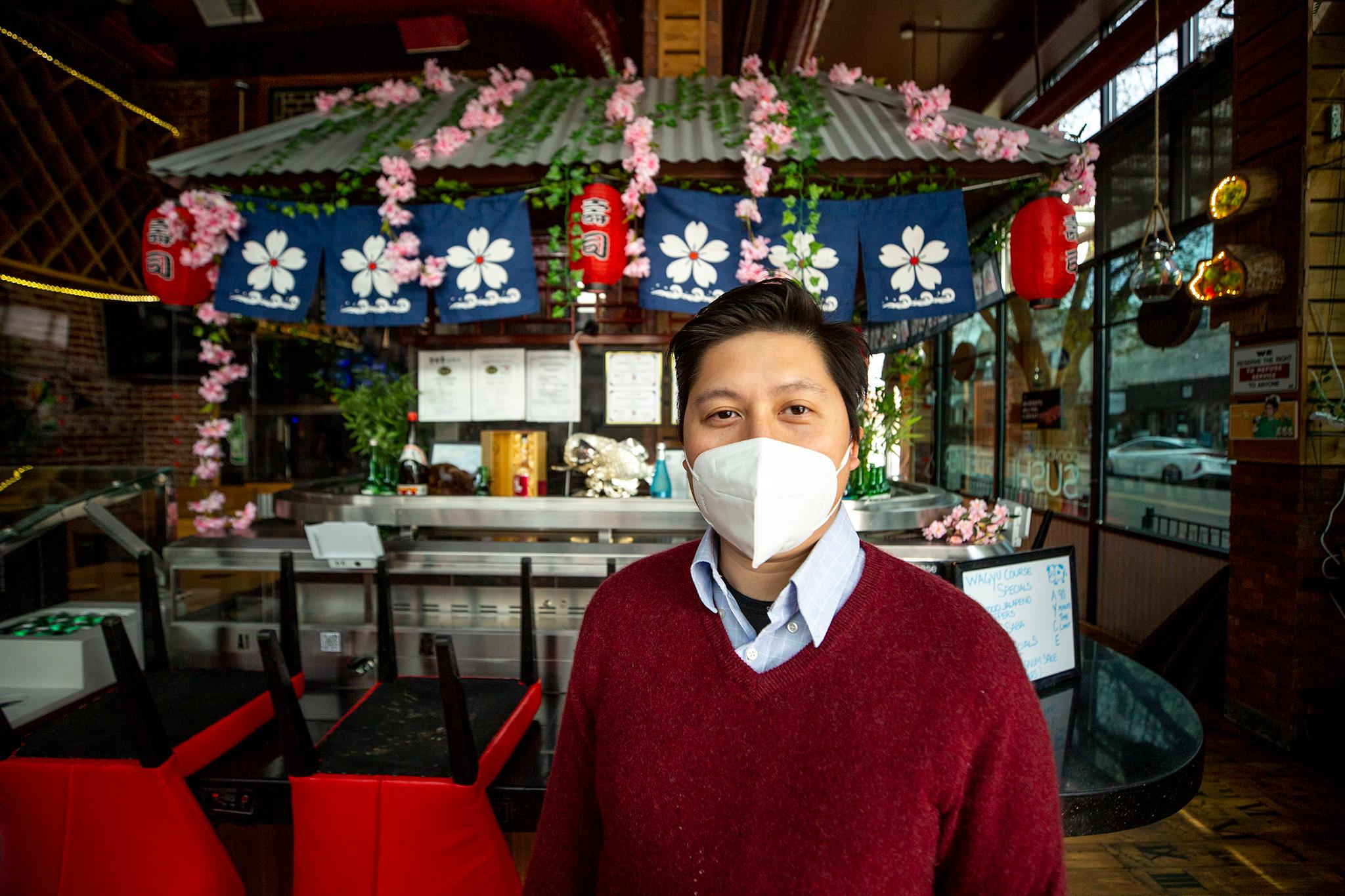
Karsten Tse, who owns the Chubby Cattle franchise on the south end of the block, said his hot pot restaurant was all but crushed last year. People have to come inside for that special kind of meal.
"It is starting to be a little bit of a turning point. We still have the restrictions," Tse told us, "but I can already see business is getting better."

